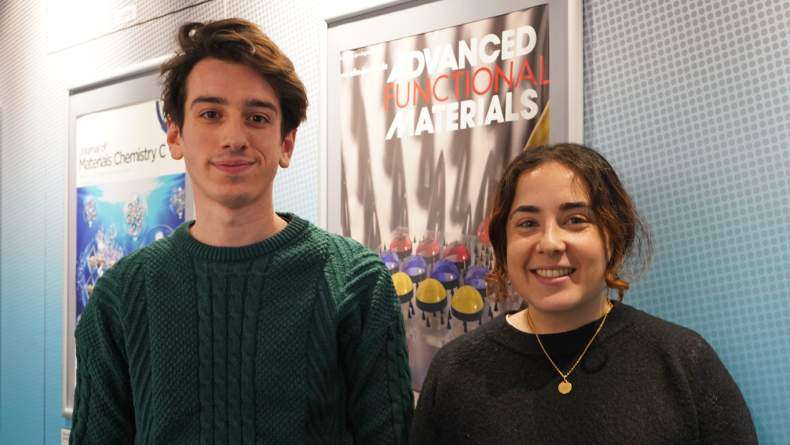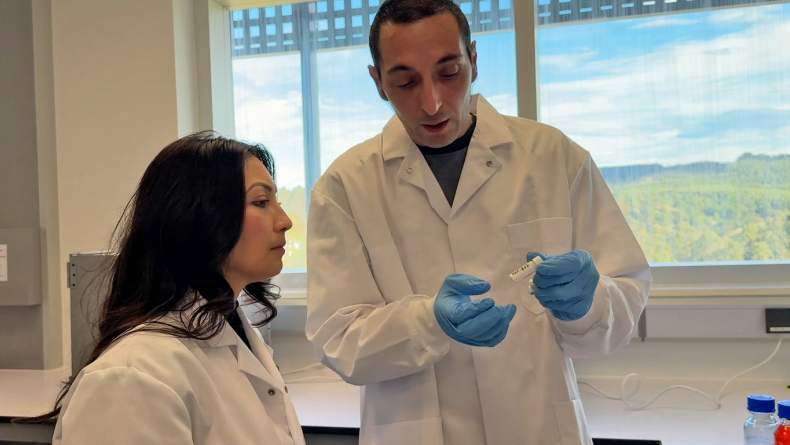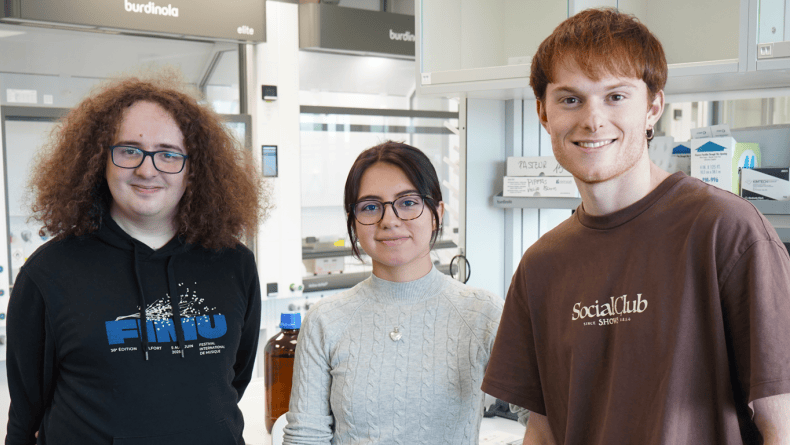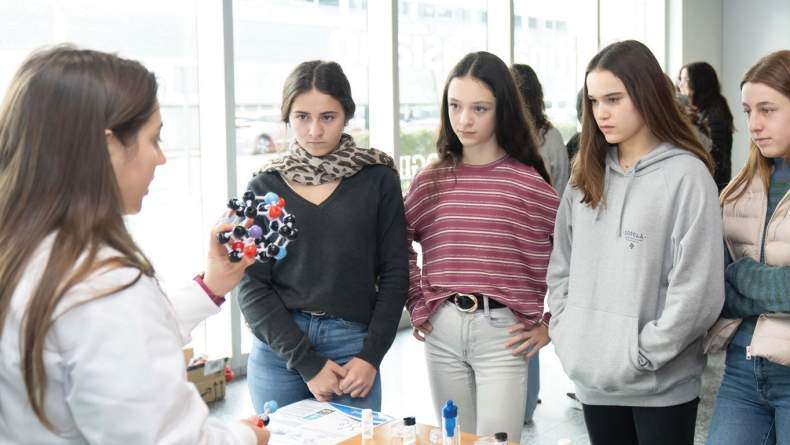The beauty of metal-organic framework bulk chemistry combined with the fascinating world of nanoparticles

The beauty of metal-organic framework bulk chemistry combined with the fascinating world of nanoparticles
STEFAN WUTTKE
University of Munich (LMU), Germany, stefan.wuttke@cup.uni-muenchen.de University of Lincoln, UK, swuttke@lincoln.ac.uk wuttkescience.com
Since the emergence of nanotechnology, it is a matter of fact that the synthesis and the manipulation of nano-objects can drastically change or even create new functionalities from the nano- to the macro-world and from inorganic matter to living cells.
Within the context of material sciences, researchers have shown that the combination of inorganic and organic chemistries in one single material, named metal-organic framework (MOF), offers structural designability at the molecular level together with tunable porosity and chemical functionalisability. In light of this, the main idea is to design hybrid nanomaterials based on metal-organic frameworks (MOFs), which could offer a new platform for biomedical applications. MOF nanoparticles (MOF NPs) combine the richness of bulk MOF chemistry with the surface- and size- dependent properties of the nanoworld. Bringing together these two worlds leads to an interdisciplinary field of research between chemistry, physics, materials science, and engineering. The past and still ongoing intensive development of synthesis routes of innovative functional MOF materials is currently enriched through their extension to the nanolevel. In doing so, scaling-down the MOF size could allow to tackle medical applications as diagnosis and therapy, which require nanometric dimensions to overcome several biological barriers. This is especially the case for drug delivery systems, which should be able to selectively and specifically deliver a drug to a site of interest.
In this talk, we describe our research aiming at the establishment of material chemistry guidelines to engineer smart MOF nanoparticles (MOF NPs) able to unlock their potential for applications in the field of life sciences. To successfully achieve smart nanoMOFs, we aim to bring together five fields of expertise as illustrated up in the Figure. Special emphasis will be given to the synthesis and characterization of MOF NPs, the MOF NPs’ external surface functionalization and their biological assessment.
 Dr. Stefan Wuttke, Senior Lecturer at the University of Lincoln (Great Britain), built up an independent research group with funding from extramural sources with the principal focus in the design, synthesis and functionalization of metal-organic frameworks (MOFs) and their nanometric counter parts targeting on one hand therapeutic and diagnostics issues, including drug delivery and medical imaging, and on the other hand biomedical applications such as peptide and protein transduction. At the same time, a basic understanding of the involved chemical and physical elementary processes in the synthesis, functionalization and application of these materials is intended.
Dr. Stefan Wuttke, Senior Lecturer at the University of Lincoln (Great Britain), built up an independent research group with funding from extramural sources with the principal focus in the design, synthesis and functionalization of metal-organic frameworks (MOFs) and their nanometric counter parts targeting on one hand therapeutic and diagnostics issues, including drug delivery and medical imaging, and on the other hand biomedical applications such as peptide and protein transduction. At the same time, a basic understanding of the involved chemical and physical elementary processes in the synthesis, functionalization and application of these materials is intended.
He is also leader of the research group “wuttkegroup for science”, hosted at the Institute of Physical Chemistry at the LMU (chair: Prof. T. Bein), and at the Center for Nanoscience (CeNS) at the LMU at the University of Munich (Germany).
Related news
Sara Martín y Stefano Lunghi, nuevos investigadores de BCMaterials
Desde BCMaterials damos la bienvenida a dos nuevas personas que integran nuestro personal investigador. Se trata de Sara Martín Iglesias, investigadora post-doctoral en la línea de Materiales Activod...Nanomateriales para la descontaminación y valorización de aguas
Personal científico de BCMaterials desarrolla nanomateriales de última generación, combinados con membranas poliméricas de origen natural, destinados a la descontaminación y revalorización de aguas....Tres nuevos investigadores se incorporan a BCMaterials
El nuevo año ha traído a BCMaterials la incorporación de tres nuevos jóvenes científicos a su equipo. Se trata de los investigadores predoctorales Karen Cano y Mikel Russo y el investigador...Actividades de BCMaterials en Emakumeak Zientzian
Este año se cumple el 10º aniversario del comienzo de la iniciativa Emakumeak Zientzian, que reúne a más de 30 entidades vascas organizadoras de actividades de divulgación científica con motivo de la...



